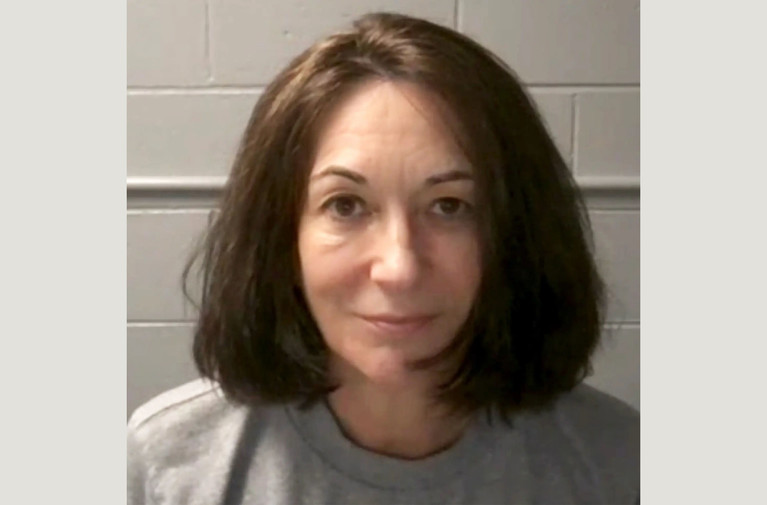Judge Denies DOJ Request to Unseal Grand Jury Documents in Ghislaine Maxwell Case
On August 11, 2025, U.S. District Judge Paul A. Engelmayer in New York rejected the Department of Justice’s (DOJ) motion to unseal grand jury transcripts and exhibits from the criminal case against Ghislaine Maxwell, the former associate of Jeffrey Epstein convicted of sex trafficking in 2021. In a scathing 31-page ruling, Engelmayer called the DOJ’s premise—that the materials would reveal significant new information about Epstein’s and Maxwell’s crimes—“demonstrably false,” stating, “There is no ‘there’ there.” The decision has sparked debate about transparency, government motives, and the ongoing public fascination with the Epstein saga.
Background of the Case
Ghislaine Maxwell, currently serving a 20-year prison sentence, was convicted in 2021 for her role in aiding Jeffrey Epstein’s sex trafficking ring, which targeted underage girls. Epstein, a wealthy financier and convicted sex offender, died by suicide in 2019 while awaiting trial on federal sex trafficking charges. The DOJ’s push to unseal grand jury materials came amid political pressure from supporters of President Donald Trump, who demanded more transparency about Epstein’s case following the administration’s July 2025 announcement that no further disclosures were warranted. The DOJ reversed course, requesting courts to unseal records in both Maxwell’s and Epstein’s cases, though it faced setbacks in Florida and now New York.
The Judge’s Ruling
Judge Engelmayer, an Obama appointee, reviewed the grand jury materials and concluded they contained “next to nothing new” compared to evidence presented at Maxwell’s 2021 trial. The testimony, provided solely by law enforcement officers and not firsthand witnesses or victims, did not identify new perpetrators, reveal unknown methods, or shed light on Epstein’s death or clients. Engelmayer criticized the DOJ for suggesting the materials held significant public interest, arguing that unsealing them would disappoint the public and erode the secrecy foundational to grand jury proceedings.
He further suggested the DOJ’s motion might be a “diversion” to create an “illusion of transparency” rather than genuine disclosure, pointing to procedural flaws like the exclusion of Maxwell’s trial prosecutors and failure to notify victims in advance. This lack of notification drew criticism from Epstein’s victims, some of whom supported unsealing with redactions, while others found the debate retraumatizing.
Broader Context and Reactions
The ruling marks the second judicial rejection of the DOJ’s efforts to unseal Epstein-related grand jury records, following a Florida judge’s denial in July 2025. A separate request to unseal Epstein’s 2019 grand jury testimony in New York remains pending. The DOJ’s push followed backlash from Trump’s base, fueled by conspiracy theories about a hidden Epstein “client list,” which the DOJ and FBI clarified does not exist. The House Oversight Committee has also escalated scrutiny, issuing subpoenas for Epstein-related files and to question former President Bill Clinton and others, though no wrongdoing by Clinton or Trump has been alleged by accusers.
On X, reactions varied. @AP announced the ruling as breaking news, while @allenanalysis highlighted Maxwell’s opposition to the unsealing, noting the records could name “high-powered associates.” Maxwell’s legal team argued the transcripts contained questionable statements she couldn’t challenge, reinforcing her appeal against her conviction.
Critical Perspective
Engelmayer’s decision underscores the tension between public demand for transparency and the legal protections surrounding grand jury secrecy. Critics argue the DOJ’s inconsistent approach—initially refusing further disclosures, then pushing for unsealing—suggests political posturing rather than a commitment to justice. The exclusion of Maxwell’s trial prosecutors and lack of victim notification raise questions about the DOJ’s process, while the ruling itself may shield victims from further distress but frustrates those seeking closure in the Epstein case. The absence of new information in the transcripts, as confirmed by the judge, challenges narratives of a cover-up but leaves unresolved questions about systemic accountability.
Implications
The ruling does not affect thousands of other Epstein-related documents the DOJ possesses, many sealed to protect victims. Maxwell’s recent transfer to a minimum-security prison in Texas and a two-day interview with Deputy Attorney General Todd Blanche have fueled speculation about potential leniency, though her appeal remains active before the Supreme Court. As public interest in the Epstein case persists, the debate over transparency versus privacy continues to polarize.
Sources: Information drawn from POLITICO, ABC News, USA Today, PBS, and posts on X. Always verify with trusted sources, as X posts may contain unverified claims.
